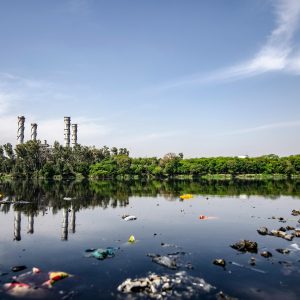British-Palestinian surgeon fights for justice
London, United Kingdom – – AFP
A British-Palestinian doctor who worked in Gaza hospitals during the Israeli attacks hopes that testimony he has given to UK police will lead to prosecutions for war crimes.
Ghassan Abu Sitta, a plastic surgeon specialising in conflict injuries, spent 43 days volunteering in the besieged Palestinian territory, mostly at the al-Ahli and Shifa hospitals in the north.
The 54-year-old has already testified to the Met, the UK’s biggest police force, about the injuries he saw and the kinds of weapons used, as part of evidence being gathered for an International Criminal Court probe into alleged war crimes committed by both sides.
He is due to travel to The Hague this week to meet ICC investigators.
Abu Sitta said the intensity of the war was the greatest of the numerous conflicts he has worked in, including in Iraq, Syria, Yemen and south Lebanon.
“It’s the difference between a flood and a tsunami — the whole scale is completely different,” he told the media during an interview in London.
“Just the sheer number of the wounded, the size of the calamity, the number of children killed, the intensity of the bombing, the fact that within days of the war starting Gaza’s health system was completely overwhelmed.”
Israel is carrying out a relentless bombardment and ground invasion that have killed at least 23,000 people, most of them women and children, according to the Gaza health ministry.
Abu Sitta — born in Kuwait and who has lived in Britain since the late 1980s — arrived in Gaza from Egypt on October 9 as part of a Doctors Without Borders medical team.
“From the very beginning our capacity was less than the number of wounded we were having to treat. Increasingly we were having to make very difficult decisions about who to treat,” he recalled.
– ‘Voice on the outside’ –
Abu Sitta is certain that he treated burn wounds caused by white phosphorus. Its use as a chemical weapon is prohibited under international law, but it is allowed for illuminating battlefields and as a smokescreen.
“It has a very distinctive injury,” he said.
“The phosphorus continues to burn until the very deepest part of the body, until you reach bone.”
Abu Sitta said he left Gaza after becoming “redundant” because a lack of medical supplies meant he could no longer perform surgery.
He has spent much of his time back in Britain briefing politicians and humanitarian organisations on the urgent need for aid.
“I’ve been trying to help my patients who I left behind as much as I can by almost being their voice on the outside.”
He also described surviving the October 17 attack by Israel on the al-Ahli hospital, which reduced the functioning hospital to a mortuary littered with bloodied corpses.
“Eventually justice will catch up with these individuals, if not in five years, 10 years, when they’re 80 years old, whenever the balance of power in the world allows for justice for Palestinians,” Abu Sitta said.











